Story, photos and video by Jo Mathis/AAPS District News
Inclusion, diversity, hard work, and compassion are among the values celebrated at Bryant Elementary.
In fact, the school was named for custodian Clifford E. Bryant, who for 25 years beginning in 1946, was known as a diligent, helpful friend to all.
Bryant’s 312 students today are thriving in that culture of caring, and two of those students exemplify the spirit of working through challenges.
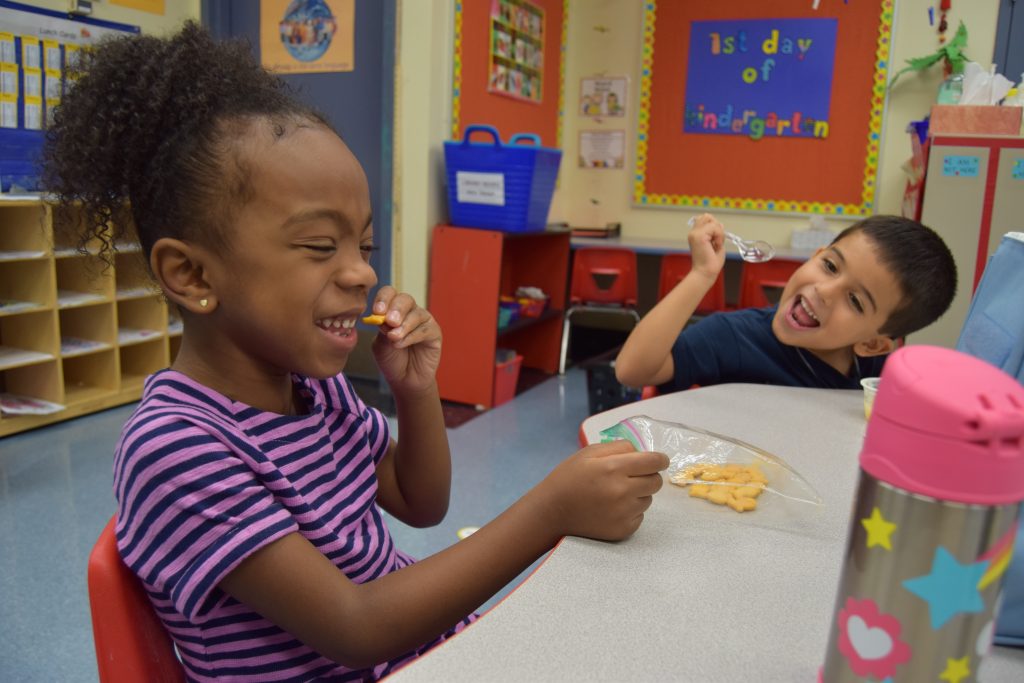
Khara Joseph, a kindergartener who has been blind since birth, and second grader Tristan Ross, who has just slight peripheral vision in his right eye, are both enrolled in general education classrooms. They are involved in all activities as their peers, and are able to successfully complete their schoolwork, much of which is modified to meet their individual needs.
Principal Roberta Heyward says all students are welcome for their unique abilities and talents, and Khara and Tristan fit right in.
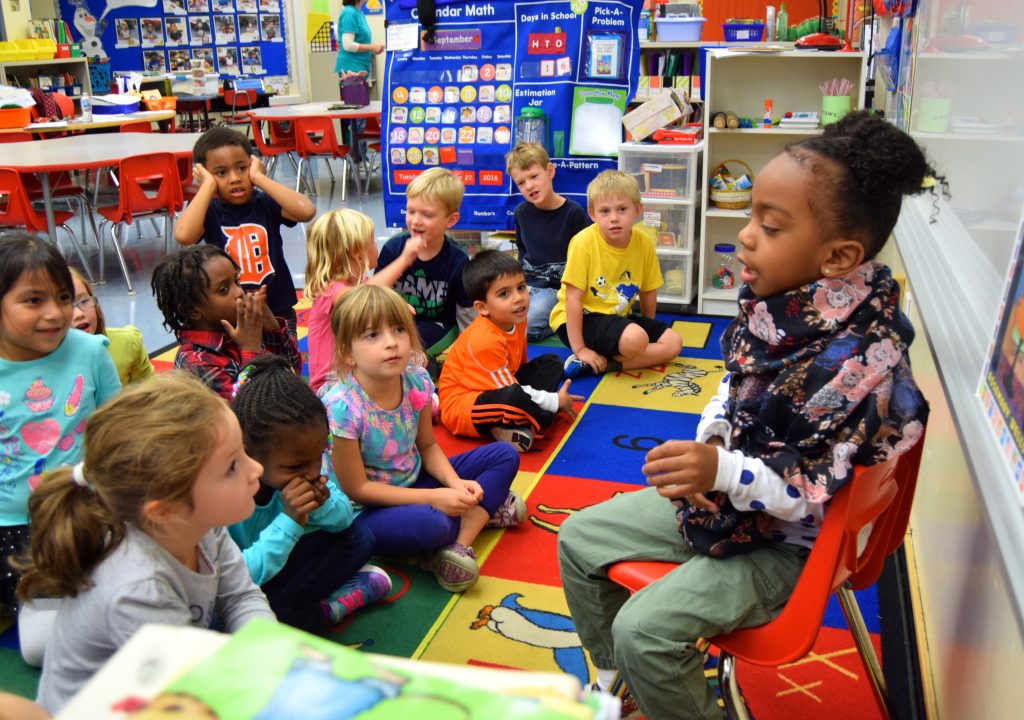
“Khara and Tristan are two of our many students who continue to teach us all about the importance of acceptance, inclusion, and the importance of celebrating and caring for one another,” she says.
There are 50 visually impaired and eight blind students in AAPS, according to
Kathy Christensen, a Washtenaw Intermediate School District certified Orientation & Mobility Specialist/teacher consultant.
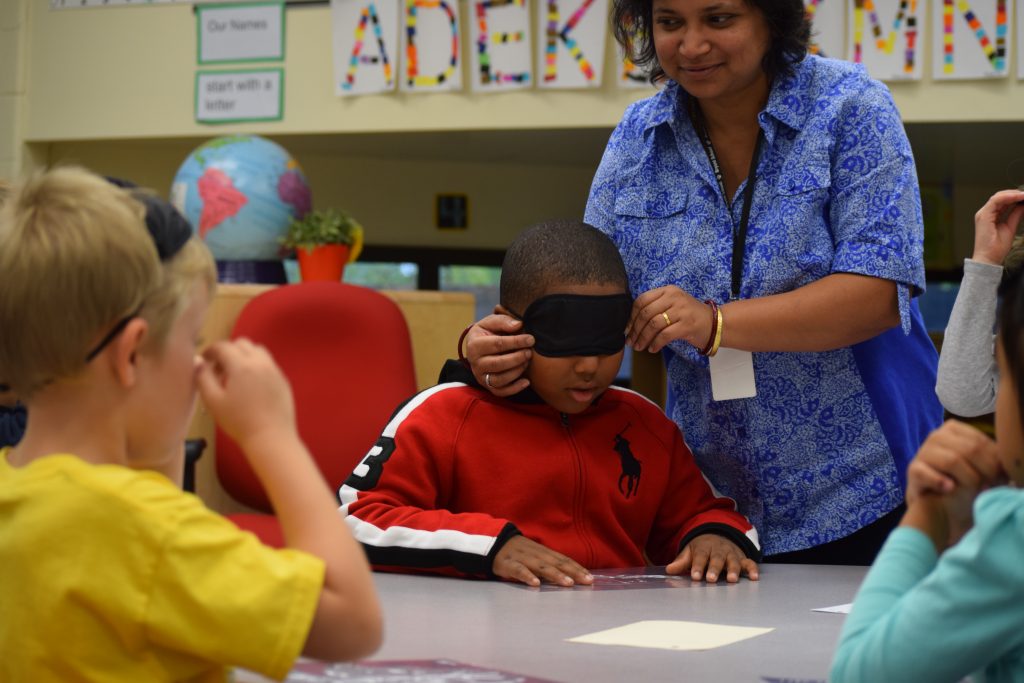
The WISD Visually Impaired staff works with AAPS to make sure students with special challenges receive all the support they need to be successful.
“I think Ann Arbor schools are really responsive to what the students’ needs are,” says Christensen. “They really do everything they can to make it happen for them.”
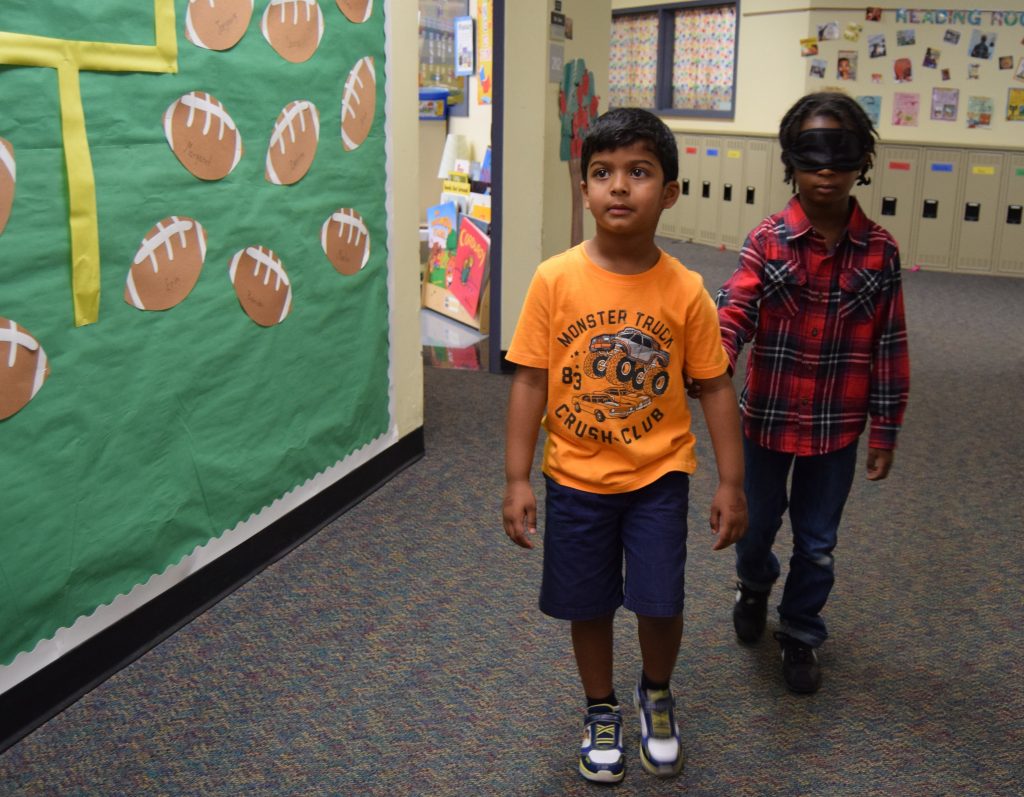
Teachers’ assistants provided by AAPS are especially needed in the early grades to help reinforce braille instruction and orientation & mobility, and produce braille and tactile graphics to make print material accessible and assist with access to the curriculum.
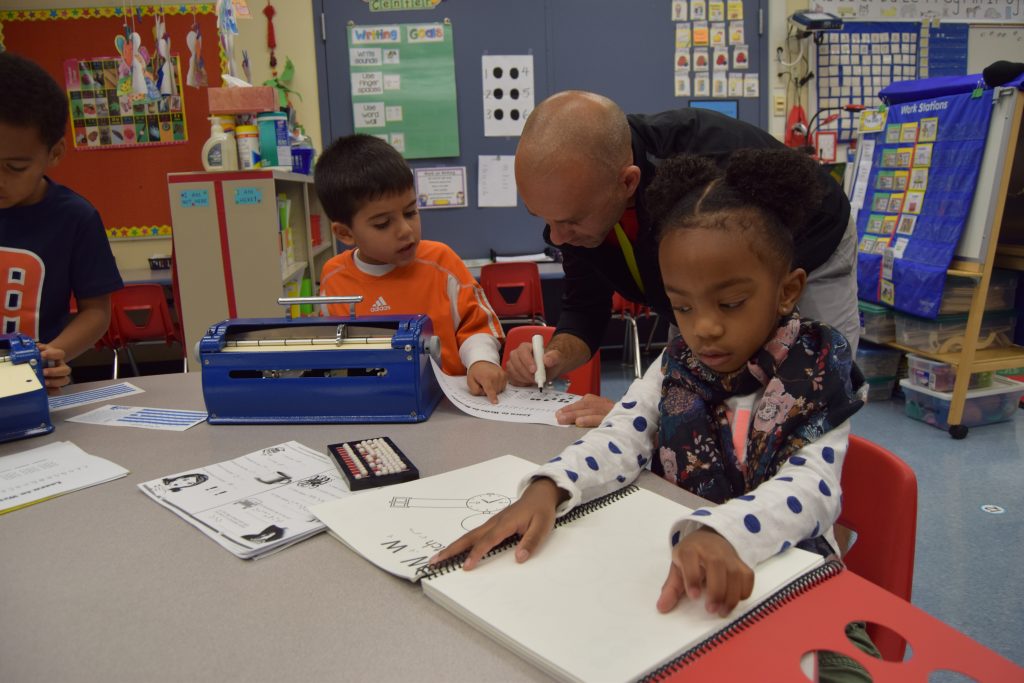
Technology helps the students move toward independence, and includes electronic braille writers (Braille Note), braille embossers that produce braille, Electronic Readers for the Blind (MP3), talking calculators, speech output software on the computer, talking money identifiers, as well as any number of apps on the iPhone for the visually impaired and blind.
All students benefit from empathy training
Christensen and fellow staff visit the classrooms of students with special needs near the start of every school year to lead empathy training.
“All the talking in the world doesn’t really matter until you’re under the blindfold and then you get it,” she said, referring to one of the exercises.
Some students with low vision may run into other students and can’t see their facial expressions.
“And some students don’t understand that,” she said. “So it’s just good to get the elephant out of the room and talk about it and demystify it. And then people can move on, and interact.”
“Then they have experience with someone who learns differently. And then as they grow up, they’ll be more comfortable talking or approaching someone who’s blind. A lot of times with people who are blind, no one will talk to them. Or they come up and talk really loud, or they’ll talk to the person who’s with them.”
She tells the students to simply introduce themselves, and talk about whatever they’d talk about with someone who has sight.
Khara Joseph
On her first day of kindergarten, Khara Joseph wore a Tshirt with the words “My future is bright.”
“She’s a shining star,” says her teacher, Deborah Joseph, “and we just can’t wait to see what the future holds for her.”
Khara has been blind since birth, and shortly after the diagnosis at five months, she began receiving occupational and physical therapy, speech, mobility and Braille services through WISD.
Khara was enrolled at AAPS Preschool & Family Center when she was three, and enjoyed a productive two years there before starting kindergarten at Bryant two months ago.
“She’s been making amazing progress,” said Joseph. “Because of her vision not being there, her hearing is phenomenal. At a very young age, language skills were very well developed … She has finely attuned music skills, so she’s taking violin lessons and piano lessons.”
Khara’s mother, Jennifer, is an AAPS psychologist who divides her time among Wines, Lakewood and Lawton.
When Khara’s classmates are working on writing, Khara is working on her Braille machine.
The students learn that Khara sees with her hands and her ears.
“The kids have been really great with helping her with things,” said Joseph, explaining that they have naturally started helping without being forced.
“Khara is very good with reading people, and reading who is very empathetic with her and taking advantage of that,” she said, adding that she makes sure to point out to Khara his is kindergarten behavior and what isn’t – no matter who is working with her.
With full assistance of a teaching assistant, and a team who helps with adaptive technology, books, materials, everything she needs.
“The district staff has been amazing with providing everything she needs,” said Joseph. “I’ve been overwhelmed with the support we’ve gotten from everyone at the district level and WISD level.”
Khara met Michigan Supreme Court Justice Richard Bernstein following a speech he gave at Pioneer High School. (Story here.) Bernstein and the family have been friends ever since.
“After meeting Judge Bernstein, we realize the sky is the limit,” says Deborah Joseph. “When you look at the things he’s done. He’s a phenomenal individual and just makes us feel there’s nothing she can’t do.”
Coming tomorrow: Second grader Tristan Ross

Mrs. Joseph is a great teacher to have. She is so caring and attentive to her sutdents .
Nice article about our students with visual impairments! Khara’s teaching assistant, Diana Chase has been an invaluable asset in supporting Khara. She helps Khara learn how to read braille, assists in adapting materials into braille and tactile graphics, helps to re-direct Khara if she becomes anxious about a new activity, supports cane skills from class to class, etc. Wish we had 10 more teaching assistants like Diana!!